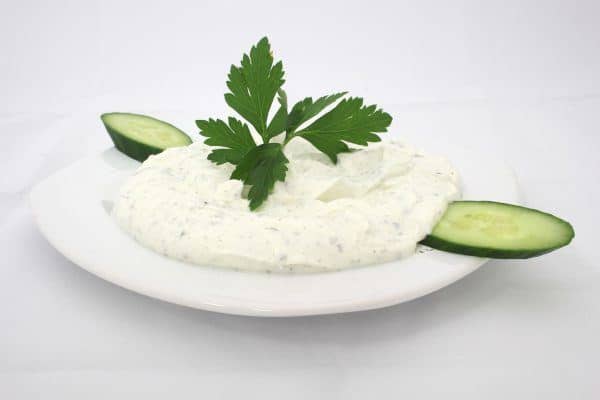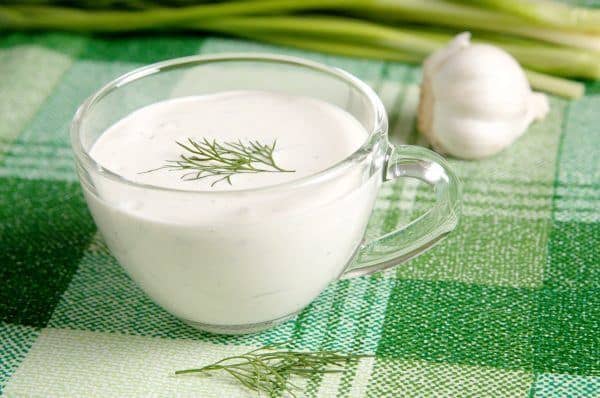If you are a regular yogurt eater, you must have encountered that towering refrigerated shelf filled with innumerable kinds of yogurt. Almost every time that you visit the supermarket, you probably see something new on that yogurt shelf. Let alone the number of brands, the sheer number of different kinds of yogurt is mind-boggling.

All the best to you if you are someone who loves to try new variants. It must be even worse for those who are indecisive when it comes to making choices.
Amidst all the frozen yogurt, flavored yogurt, probiotic yogurt, plain yogurt, you will also find a large collection of Greek yogurt. You must be lying if you say you have not been intrigued and tempted to get a cup of Greek yogurt. It sounds fancy!
But you might have passed it wondering “what does Greek yogurt taste like?” Good that you came to this article. Let me solve your queries about Greek yogurt!
Table of Contents
What is Greek Yogurt?
You must have eaten yogurt since childhood. You even must have eaten frozen yogurt or flavored yogurt. But once you saw these on the shelf, did you exclaim, “What on earth is Greek yogurt?!”
We know what your first thought must have been. No, Greek yogurt is not made in Greece and shipped to superstores around the globe. Also no, Greek yogurt is not even a yogurt recipe indigenous to Greece. Absolutely no, it has no relation to Greek mythology (none that we know of at least).
Level One: The Basic Yogurt
To explain what Greek yogurt is, let me take you one step back to regular yogurt. The basic, regular yogurt is composed of two things: pasteurized milk and bacterial culture. What it also needs is a few hours, a storage container, a warm environment, and some peace and stability. So, if you mix some yogurt or bacterial culture in a container full of warm, pasteurized milk, and you let it sit undisturbed for 6 to 10 hours, it shall turn into yogurt.

Level Two: Making It Greek
The process of making Greek yogurt is no different than that of regular yogurt. It just involves taking the regular yogurt one step further. So, what makes the yogurt Greek? I am telling you once again, there is nothing “Greek” about Greek yogurt. No cheese, no olives, no honey in it. However, let us not get into its etymology.
Regular yogurt turns into Greek yogurt when regular yogurt is strained thoroughly over multiple hours. The process involves draining the maximum amount of water from the regular yogurt by straining continuously for hours. The resultant thick, creamy yogurt is known as Greek yogurt.
How is Greek Yogurt Different from Regular Yogurt?
We discussed the gist of the matter in the above section. You can make regular yogurt by setting a mixture of pasteurized milk and bacterial culture. Then you can make Greek yogurt by straining the regular yogurt with cheesecloth or an old t-shirt.
But what happens when the liquid is removed from the regular yogurt to make it Greek yogurt? Does it cause any changes apart from the change in its appearance? Let us understand this concern.

Carbohydrates
The watery substance in yogurt is called whey. It is whey that contains a large majority of the carbs present in yogurt in the form of sugar, lactose to be specific. Once all the whey is drained away, the creamy part of yogurt that is left has extremely low carbohydrate content. This makes Greek yogurt a great choice for people who are conscious eaters or fitness enthusiasts.
Protein
The process of straining yogurt is also a process of concentrating. When the yogurt loses its water component, it becomes much more concentrated. The protein content of the entire yogurt is also then concentrated into the white, creamy mass that becomes the Greek yogurt.
It is said that while the carb content of Greek yogurt is half the carb content of regular yogurt, it also has double the protein as compared to regular yogurt. It is no doubt why people choose Greek yogurt over regular yogurt for health reasons. Pretty obvious!
Fat
Here’s where there is a slight issue with Greek yogurt. With the concentration of regular yogurt, fat also gets concentrated into the cheesy mass of Greek yogurt. If you check the labels carefully, you will see that Greek yogurt has a higher quantity of saturated fat per serving.
Thanks to innovation, this is a problem that has been solved quite efficiently. Greek yogurt comes in full-fat, low-fat and fat-free variants. So if you are looking for a healthy option, you can opt for the latter two variants of Greek yogurt.
What Does it Taste Like?
Now coming to the main question - what does Greek yogurt taste like? The direct answer to that is that Greek yogurt is tangy or sour. If you ask people or check various responses on the internet, there are a range of opinions you will get on that thought.

Some people find Greek yogurt too tart or tangy. They either love how it is much tangier than regular yogurt, or they detest its sourness. On the other hand, you will find people who do not find much difference in the taste and cannot relate to people who find Greek yogurt too tart or sour.
The sourness of Greek yogurt is attributed to the process of fermentation. The active bacterial cultures present in yogurt are forever at work, trying to create an acidic environment to break the milk particles down. The acidity that is balanced by some amount of water in whey is heavily concentrated when the yogurt is completely strained to make Greek yogurt.
Hence, the acidity of the yogurt gets enhanced and concentrated in the creamy mass of Greek yogurt. This is what causes slightly higher levels of sourness in Greek yogurt.
I believe that you have an answer to what does Greek yogurt taste like. However, do not expect all Greek yogurt brands to have the same taste. Various brands use different methods and varying quality of ingredients to make Greek yogurt. As a result, their taste also varies a little.
If you are curious to find out if Greek yogurt is your thing, check out the brand reviews online first. Then, get yourself the smallest possible cups of various brands and try them out. We hope you do end up liking Greek yogurt. It’s after all great for your health!
Texture and Consistency of Greek Yogurt
By now I have already told you countless times that Greek yogurt is thick and creamy in its consistency. You also know by now that this is because most of its water content is strained from it. If you go for packaged plain Greek yogurt, you will find that the consistency of different brands varies slightly. However, all of them will be largely thick and creamy.

Greek yogurt is also known as yogurt cheese, so you can imagine how it must be. It is also known as strained yogurt. This is because of the straining process that regular yogurt goes through to become Greek yogurt.
However, to save the time, effort and money that the straining process requires, some brands use a shorter method. They tend to use thickening agents like cornstarch to attain the consistency of Greek yogurt.
Ways to Make Plain Greek Yogurt Tastier
Many people do not like the taste of plain Greek yogurt. Some do not like it because of its sourness, some others do not like it because, well, it’s quite plain. Understandably so. You cannot have plain Greek yogurt every day. It’s a bit boring honestly.
Does that mean you necessarily need to head over to the flavored Greek yogurt section to make things better? No, absolutely not!
Flavored yogurt contains food coloring and flavoring agents. These substances contain fructose and unhealthy chemicals. The added sugar (fructose) increases the carb content of the Greek yogurt drastically. So, all the effort and money you put into making a healthier choice goes to waste.
However, there are better options to make your plain Greek yogurt taste much more interesting, all the while keeping it healthy. Here are some ways:

Can I Use Greek Yogurt as a Sour Cream Substitute?
That, my friend, is a wonderful idea. You can do that if you don’t like to stock up on a lot of fat-based preservatives at home. There are people who do that because they’d rather buy one of the two products to save on grocery bills. Whatever the reason may be, the idea is gold.

If you are using it raw, in dips or as dressing, for instance, you can pretty much use the same quantity. Mix it up with fresh herbs and some finely chopped veggies to make a fantastic dip.
If you are using it for cooking purposes, make sure you purchase the full-fat variant. The purpose of sour cream is to bring the creaminess to the dish. With a full-fat variant of the Greek yogurt, you can get close to adding that texture and flavor to your dish. Low-fat variants will not work just as well because of their low-fat content.
In using Greek yogurt as a sour cream substitute for baking, be warned that Greek yogurt will make your dish a bit tangier. It also will not add the kind of softness that sour cream would because it contains lesser fat content than sour cream. This is, however, not to say that you cannot use it for baking. Try it and see if it suits your needs.
Conclusion
So, by now you have not just learned what does Greek yogurt tastes like, but much more. You know how it is made, how it differs from regular yogurt, why does it taste the way it does and what you can do to make the flavor more interesting. This is a lot of information, but this will help you get over your hesitation, if any, of choosing a cup of Greek yogurt over regular yogurt the next time you are at the supermarket.
If not, then you can just make some Greek yogurt at home and enjoy it fresh with some fruits and nuts like I have mentioned before. Bon appetit!
